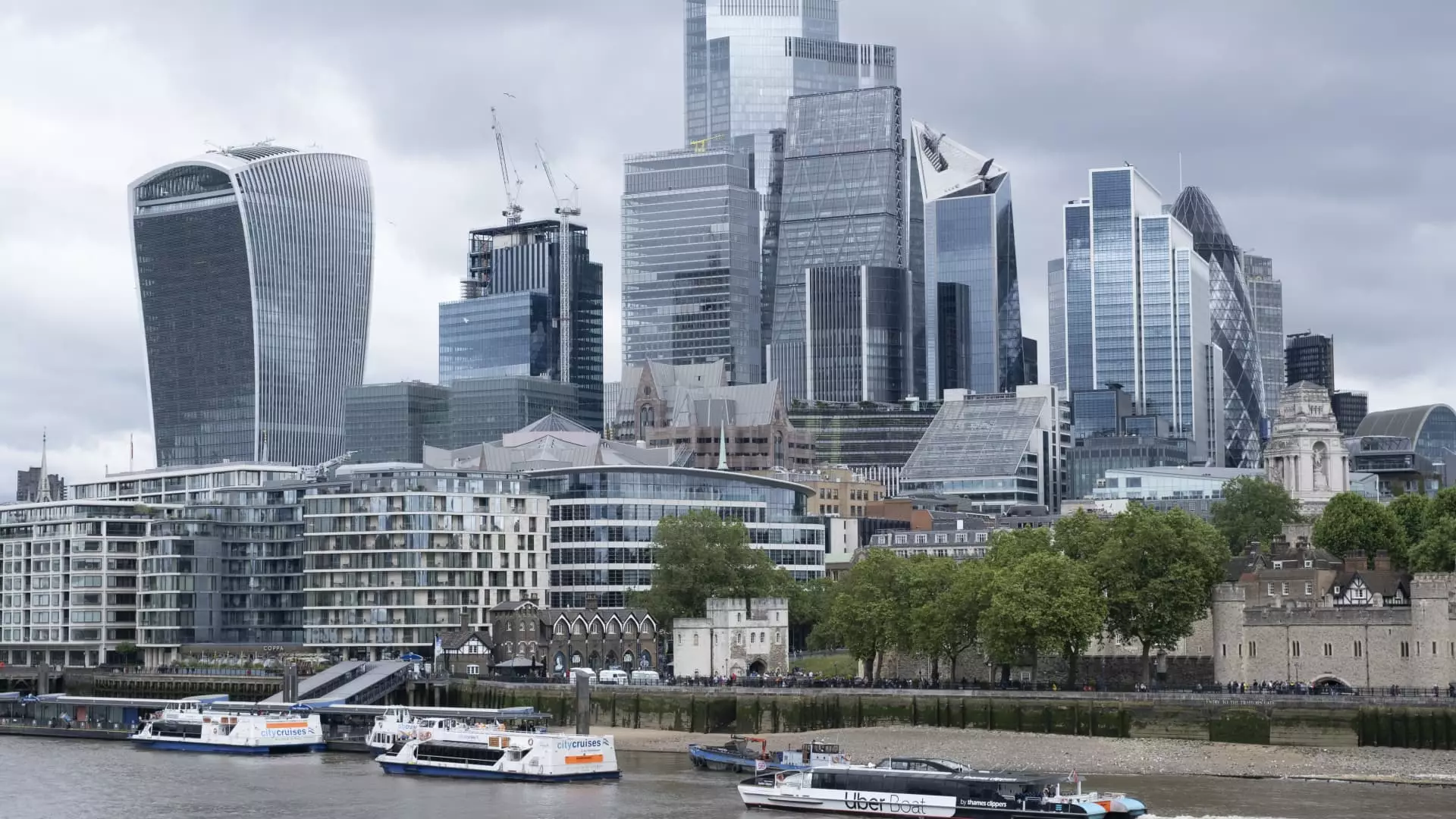The International Monetary Fund (IMF) has recently upgraded its economic growth projections for the United Kingdom, signaling a potential shift toward recovery as a result of declining interest rates and inflation pressures. In its latest report, the IMF reflects a growth forecast of 1.1% for the UK economy in 2024, an increase from its previous estimate of 0.7% made in July. Such an adjustment suggests that the IMF anticipates a recovery in domestic demand, driven by a more favorable economic environment.
This reflects a broader trend among economic commentators who note that the UK’s inflation rate fell to a mere 1.7% in September, a stark contrast to the peak of 11.1% recorded in October of the previous year. Economists attribute this improvement to lower inflation in services and manageable wage growth, which collectively create a landscape conducive to consumer spending. As we move through the year, there are expectations that the Bank of England will respond significantly by cutting interest rates, projecting a drop from the current 5.25% at the beginning of the year to around 4.5% by the end of 2024.
Despite the positive adjustments in growth forecasts, the UK economy has shown rather modest results thus far. Economic expansion was a mere 0.2% in August, and did not record any growth during June and July. Many experts remain realistic about the obstacles that still lie ahead. The IMF’s optimism coincides with the impending unveiling of the center-left Labour Party’s budget, which is touted as the first in 14 years. Prime Minister Keir Starmer has voiced concerns regarding a projected £22 billion ($28.5 billion) financial shortfall, prompting the need for “tough” fiscal decisions.
This anticipated budget comes at a time of political complexity, with Starmer’s commitments to avoid tax increases in specific areas like income and corporate taxes—although a more comprehensive tax overhaul might be unavoidable. The uncertainty surrounding the budget has already had repercussions, impacting consumer confidence as evidenced by August’s consumer sentiment metrics. Nonetheless, recent data from the S&P Global UK Consumer Sentiment Index suggests a glimmer of optimism among households, indicating a readiness to engage in significant expenditures, which could potentially stimulate growth.
Finance Minister Rachel Reeves, who assumed her role just a few months ago, remarked on the importance of the IMF’s revised growth forecast, acknowledging that while a positive outlook is encouraging, further efforts are necessary to solidify a robust economic recovery. The Labour Party’s mission is ambitious: to establish the UK as a leader in sustainable economic growth within the G7 nations. This pledge stands in stark contrast to previous austerity measures, leaning more toward strategies designed to enhance economic productivity and efficiency.
While the IMF has adjusted its growth expectations for the UK upward, it has simultaneously revised the growth forecast for the eurozone down to 0.8%, citing stagnation concerns in Germany—Europe’s largest economy. Analysts point to several challenges including fierce market competition, particularly in the automotive and manufacturing sectors, coupled with high energy prices that are beginning to strain industrial production.
In a broader context, the IMF also forecasts varied growth within other advanced economies: a promising 2.8% growth projected for the United States, a humble 1.3% for Canada, and a disheartening 0.3% for Japan—indicative of persistent demand issues due to inflationary pressures. The contrast in forecasts serves to emphasize the unique position in which UK policymakers find themselves. They must navigate the enthusiastic yet cautious optimism stemming from recent economic indicators while diligently preparing for the potential ramifications of domestic budgetary decisions and global economic uncertainties.
The UK’s ability to capitalize on improved efficiencies, increased consumer spending, and appropriate monetary policies will ultimately be crucial in transforming cautious forecasts into tangible economic growth. As we stand at this pivotal juncture, the focus will be on how efficiently the Labour government can implement its vision and balance fiscal discipline with the pressing need for economic revival.

Leave a Reply